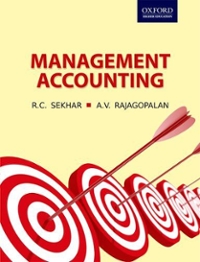Question
Archer Daniels Midland (ADM) was ranked 59th on the 2007 Fortune 500 list. ADM is one of the largest agricultural processors in the world, with
Archer Daniels Midland (ADM) was ranked 59th on the 2007 Fortune 500 list. ADM is one of the largest agricultural processors in the world, with 27,600 employees globally. Because everything ADM does begins with agriculture, its partnership with the farming community is vital. Farmers are essential to the overall world economy, and that's why ADM's work is essential to them; ADM creates thousands of products from their crops, and serves hundreds of markets for their crops. Serving as a vital link between farmers and consumers, ADM takes crops and processes them to make food ingredients, animal feed ingredients, renewable fuels, and naturally derived alternatives to industrial chemicals. Four of its primary resources it gets from farmers to turn into products are: cocoa (all kinds of chocolate goodies), corn (food, ethanol fuel for your car, and alcohol), wheat (flower and food products), and oilseeds (soybean, canola, cottonseeds, sunflower seed, palm, and also biodiesel fuel for cars and trucks). As you know, with the high price of gasoline, people are looking for an alternative to fuel their motor vehicles. ADM is placing a big bet on the business of turning farm crops into fuel and chemicals. To lead this new strategic initiative into more profitable industrial products, in 2006 ADM broke company tradition by appointing a woman and energy-savvy outsider as its new CEO?-Patricia A. Woertz. She left her position as executive VP at Chevron Corporation seeking a CEO position. With annual revenues around $70 billion, ADM is the largest publicly traded U.S. company headed by a woman.64 Woertz increased her power by being appointed as chairman of the board of directors in 2007. She has been ranked 4th and 6th on Fortune's list of "Most Powerful Women." Although Woertz's story in interesting, in this case we focus on a lower-level manager, Rick Parr. (Please note: ADM is an existing company. However, Rick Parr, Ed Carlton, and Jose Goizueta are not the names of actual managers at ADM; they are used to illustrate contingency leadership.) Rick Parr worked his way up to become the manager in a department making small parts. Parr's job was to supervise the production of one part that is used as a component in other products. Running the machines to make the standard parts is not complicated, and his employees generally find the job to be boring with low pay. Parr closely supervised the employees to make sure they kept production on schedule. Parr believed that if he did not watch the employees closely and keep them informed of their output, they would slack off and miss production goals. Parr's employees viewed him as an okay boss to work for, as he did take a personal interest in them, and employees were productive. Parr did discipline employees who did not meet standard productivity, and he ended up firing some workers. Ed Carlton, the manager of a larger department that designs instruments to customer specifications, retired and Parr was given a promotion to manage this department because he did a good job running his old department. Parr never did any design work himself nor supervised it. The designers are all engineers who are paid well and who were doing a good job according to their prior supervisor Carlton. As Parr observed workers in his usual manner, he realized that all of the designers did their work differently. So he closely observed their work and looked for good ideas that all his employees could follow. It wasn't long before Parr was telling employees how to better job of designing the custom specifications. Things were not going too well, however, as employees told Parr that he did not know what he was talking about. Parr tried to rely on his authority, which worked while he was watching employees. However, once Parr left one employee to observe another, the workers went back to doing things their own way. Parr's employees were complaining about his being a poor manager behind his back. The complaints about Parr being a poor manager got to his boss, Jose Goizueta. Goizueta also realized that performance in the design department had gone down since Parr took over as manager. Goizueta decided to call Parr into his office to discuss how things are going. Questions: 1. Using Exhibit 5.3 on page 157 of the book, Fiedler's contingency leadership model, what situation and leadership style are appropriate for the production department and for the custom design department and why? 2. Which of the two basic continuum leadership styles would Tannenbaum and Schmidt recommend for the manager of the design department and why? 3. Which path-goal leadership style would House recommend for the manager of the design department?

Step by Step Solution
There are 3 Steps involved in it
Step: 1

Get Instant Access to Expert-Tailored Solutions
See step-by-step solutions with expert insights and AI powered tools for academic success
Step: 2

Step: 3

Ace Your Homework with AI
Get the answers you need in no time with our AI-driven, step-by-step assistance
Get Started


